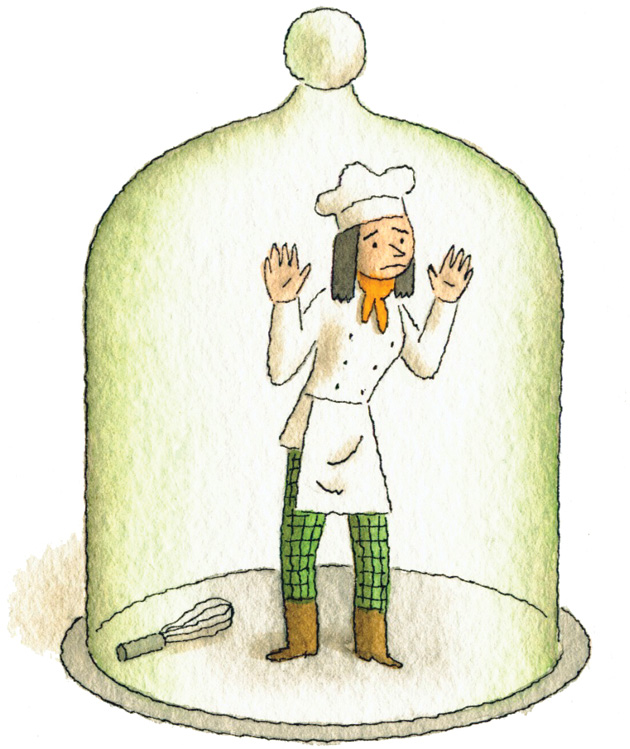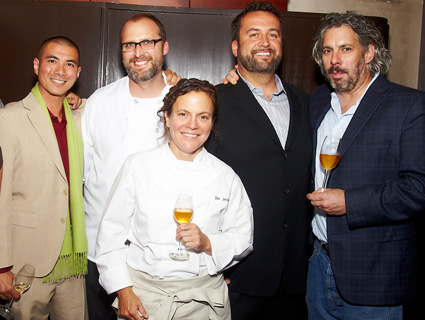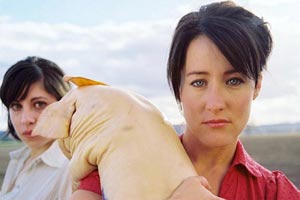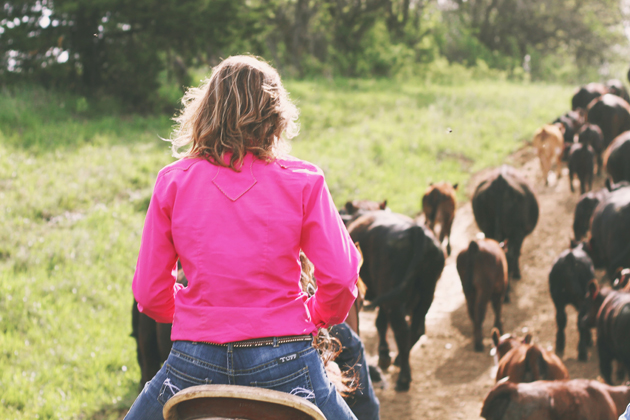
Photo by Marjorie Gayle Alaniz
During the 2013 Super Bowl, Marjorie Gayle Alaniz was captivated by a commercial for Dodge Ram trucks that featured portraits of American farmers. She couldn’t help but notice, however, that among the many farmers shown, there were only a handful of women. Alaniz, who comes from a family of Iowa farmers, was disappointed. “I wondered, how has this happened, that images of farms don’t include women, when practically every farm has a woman working on it?” Indeed, according to the latest USDA Census of Agriculture, 46 percent of American farm operators are women.
Shortly after her Super Bowl revelation, Alaniz quit her job at a crop insurance company and started documenting women farmers in Central Iowa. The result is FarmHer, an online collection of photographs of some 40 lady farmers and counting. “The feedback has been fabulous,” says Alaniz. “It’s usually coming from women who grew up around agriculture or are currently involved in ag. They say, ‘Thank you for showing the rest of the world that we are out here doing this, too.'”
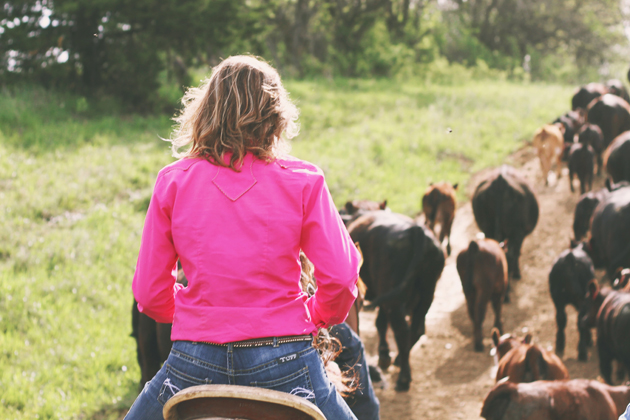
Kim Waltman, along with her family and about 20 neighbors, drives a herd of her beef cattle from the pasture to a holding area for vaccination and branding.
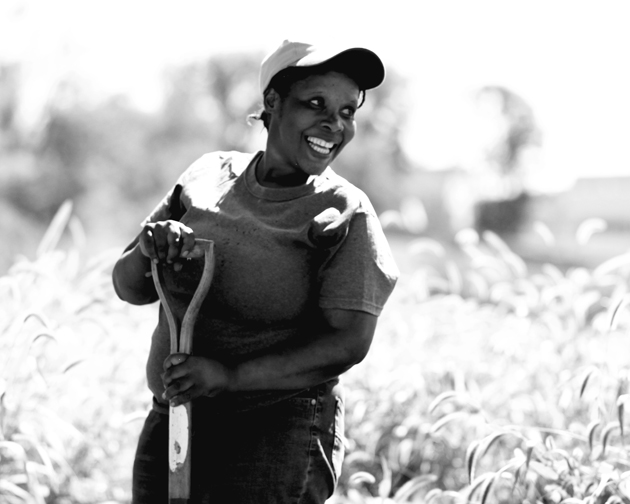
Angelique Hakazimona, who farmed in her native Rwanda before coming to Iowa as a refugee, digs sweet potatoes on the certified organic farm where she works.
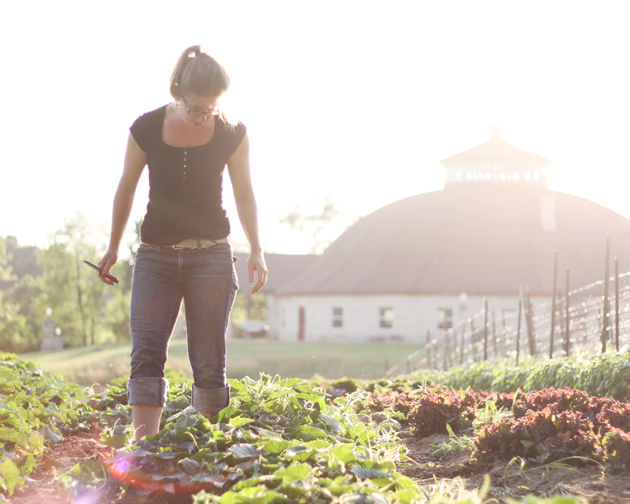
Kate Edwards, who farms veggies on a few acres to feed 150 families through her CSA program, harvests produce during the last light of a long summer day.
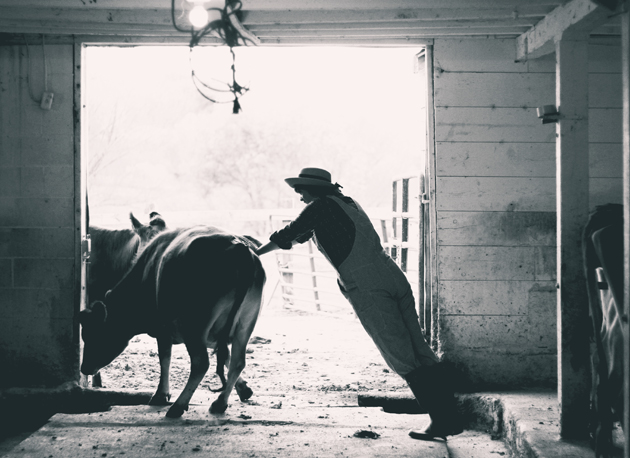
Inga Witscher pushes a wayward cow back into the barn on the organic dairy farm that she runs with her husband.
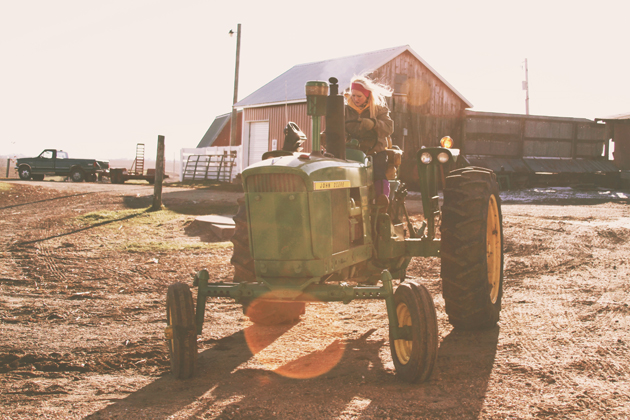
Kellie Gregorich drives her John Deere tractor, which has been handed down through generations on her family’s cattle and row crop farm.
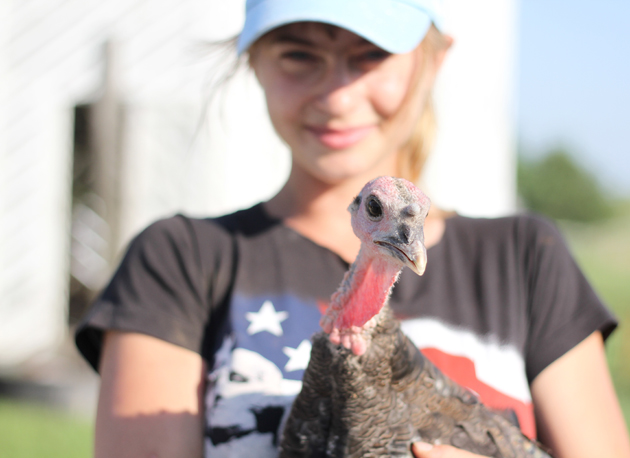
Carolyn Scherf holds a heritage-breed turkey she raised on a farm in rural Iowa.
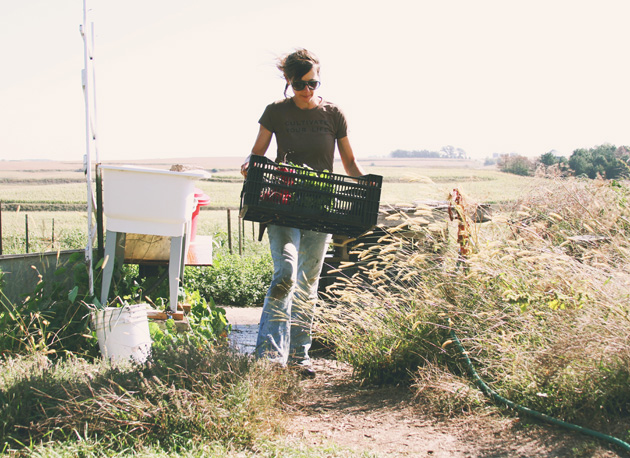
Danelle Myer, the sole owner and operator of her farm, carries a box full of freshly washed produce from the field to the nearby barn, where she will sort and package it in preparation for the farmers market.
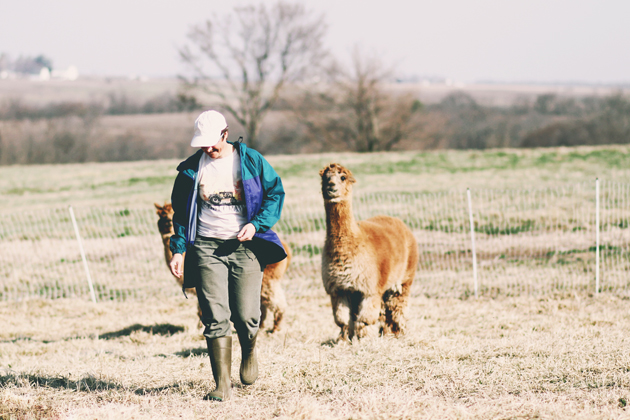
Jill Beebout checks on her alpacas. With her partner, Beebout grows produce and raises bees for honey, chickens for eggs, and alpacas for fiber.
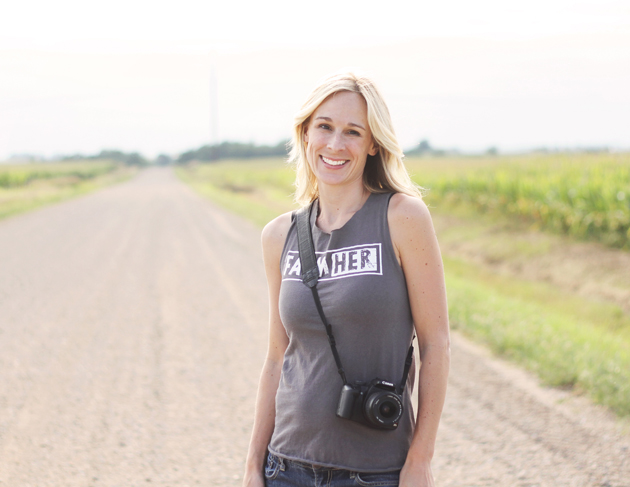
FarmHer photographer Marjorie Gayle Alaniz











